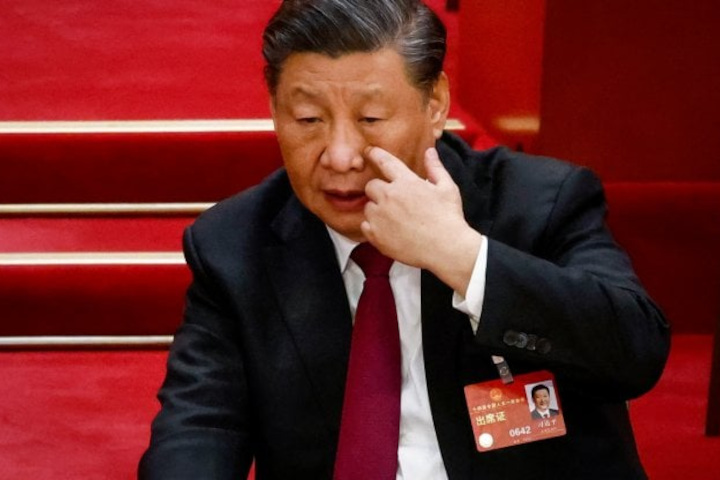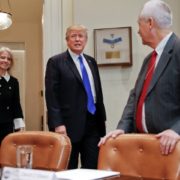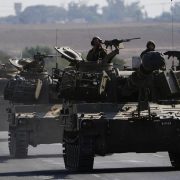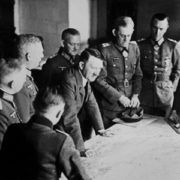
After COVID, Beijing is grappling with a new challenge – an expanding war encircling its friends and neighbors. Is China a victim or a contributor to this new conflict? The country may or may not be aware, but suspicions are mounting about its role.
War is spreading like a virus during an epidemic. Two years ago, Russia initiated it in Ukraine. Then, as it became stuck in the marshes and bogs of the Dnepr River, war seized onto the decades-long simmering tensions in Gaza and erupted on October 7, 2023, with the Hamas terrorist attack. It further reignited Houthi pirates’ aggression and is currently fueling threats and brinkmanship on the other end of Eurasia, in North Korea, where Kim Jong-un, with his distinct hairstyle, ominously flaunts newer missiles, bombardments, and declarations of war.
Russia clearly initiated the conflict in Ukraine, but less evidently, a Russian shadow can be perceived behind Hamas, the Houthi, North Korea, and the «war fatigue» in some European countries like Italy, barely affected by the fight. It appears that Moscow, unable to secure victories on the battlefields, is broadening the conflict elsewhere to divert Western military support from Kyiv and escalate the clash with the U.S., hinting: «Either you give me what I want in Ukraine, or I’ll broaden the war to your doorsteps».
Russian President Vladimir Putin seems to lack military talent but demonstrates political genius, approaching war as a game of political chess. However, this approach also backfires on Russia. Countries like Germany, initially lukewarm in their support for Ukraine, have grown to believe that satisfying Putin today will lead to more demands tomorrow. German Defense Minister Boris Pistorius warned that the war between Russia and Ukraine could expand beyond neighboring countries, citing threats from the Kremlin, especially against Baltic states.
A twist arises in these dire times – China serves as the economic dynamo supporting Russia’s military reindustrialization and economy. However, it’s unclear how much China actively contributes to this geopolitical game or if it’s merely being drawn into a situation it can hardly control. Beijing might perceive ambiguity as leverage in dealing with the U.S., given Washington’s interest in minimizing support for Moscow. Simultaneously, Beijing faces a difficult position as Moscow leads the strategy, and Beijing follows without complete control, resembling a junior partner taken for a spin. Here, there’s a risk of being drawn into something China either doesn’t want or fully comprehends.
Another possibility is that Beijing assumes full control of ongoing wars and conflicts, but this is difficult and would involve other types of problems. Overall, there is a question mark – China doesn’t know how the wars will end or who will emerge victorious or defeated. Behind the insecurity lies an even bigger issue.
The question at hand is: Is America indeed declining while China is rising and replacing it? Are domestic troubles demolishing America before China faces its own challenges? Or will America emerge ahead of China in a few months or years? With numerous ambiguities, it appears that either China is the sly mastermind, pulling even Putin’s strings, or it is a puppet in Russian hands. If it’s the former, then China is leading a global war against the West, and sooner or later, it will be treated accordingly. If it’s the latter, Beijing has lost control of itself.
In either case, the situation appears very dangerous from the outside, impacting economic performance and business confidence domestically and internationally in dealing with China. China’s inclusion in the new American label «axis of autocracies» can be perilous and needs to be addressed cautiously. So far, it has been ignored or hastily rejected in anger, exacerbating the problem rather than solving it.
No one is certain the U.S. will lose in the present wave of wars, so prudence should guide China to find a way to extricate itself from this grim predicament. Perhaps Beijing has been going with the flow without fully grasping the repercussions of what was happening, driven mainly by small-time calculations. A similar drift occurred with the Belt and Road Initiative (BRI). For years, Beijing pushed the BRI, viewing it almost as a small business opportunity while neglecting larger geopolitical concerns. Many attributed this to Beijing’s larger political ambitions, betrayed by small calculations in handling day-by-day operations abroad.
Possibly, even in the present situation, China was initially duped by Putin’s promises of a quick victory in Ukraine, and one thing led to another without a complete comprehension of the dimensions of the problem. China now seems aware of the North Korean problem. Last week, Communist Party diplomatic chief Liu Jianchao pledged to increase strategic communications as he met a North Korean envoy in Beijing. In an apparent move to de-escalate the situation, Liu vowed to work with North Korea to protect regional stability as tensions with Seoul escalate. Liu’s meeting appears to be a break from past Chinese laggard reactions to sudden international events. Still, it’s unclear whether China will manage to broker the restart of a dialogue between Pyongyang and Washington and if Beijing will exert all its weight to stop the spread of the war epidemic.






The war virus didn’t start three years ago but twenty-three years ago. See for example https://www.aljazeera.com/news/2003/9/22/us-plans-to-attack-seven-muslim-states. We can even go to 1996 when president Clinton sent two carrier battle groups through the Taiwan Strait and started the extension of NATO over Eastern Europe.
While for the leaders of US war is a profitable enterprise – they have a navy they trusted to maintain trade relations, until they met the Houthis – the two other super powers depend on industrial production for their livelihood. Besides they maintain strong remembrances of the Second World War and its horrors. So to them war is something to be avoided.
US is hoping to solve its Taiwan problem by a war with China while China is delaying that war as far as it can in the hope of avoiding it altogether.
Russia too tries to avoid wars. But its war preparations have a strong theoretical basis. It started to rebuild its military seriously about 2000 but a lot was to be done. When US insisted that Ukraine and Georgia were to become members of NATO and Georgia attacked the small Russian forces in South Ossetia that were there following an agreement at the end of an early ‘nineties civil war it was well enough organized to invade the country, destroy its army and leave again in five days. But when US organized a regime change in Kiev in 2014 its armed forces were to small to intervene. It could support the Russian speakers who were prosecuted by the new regime but that was all. It achieved the Minsk II agreement to restore the human and political rights of the people of the Donbas that was unanimously underwritten by the UN Security Council but it was not executed because it was seen by Ukraine and the two Western ‘partners’ France and Germany as a way to win time to build up the Ukrainian armed forces. Which they nearly completed by 2021. When Russia proposed a pair of treaties to assure all countries of security Washington was not interested and repeated that Ukraine was to become a NATO member. Then Russia sent a very small force into Ukraine to show its seriousness and Kiev was convinced, so Russia removed its forces from half of the area it had occupied. However US and UK insisted that the war was continued so Russia called up reservists and built 1000 km of multiple defensive lines. By fighting near that defense area and only attacking military installations, industry important for military production and sometimes electrical power plants the misery of the Ukrainian population was minimized while the Ukrainian armed forces were exhausted. The end of the war is now near. While in the agreement of end March 2022 all of the area in dispute except Crimea could be returned to Ukraine – if the population choose so in a referendum, we might now see both Kharkov and Odessa ending up as a part of Russia.
The assault by Hamas on October 7 was an admirably planned military operation of which few were aware before it began. Israeli “intelligence” knew of the plans a year ago but just as the US vis-à-vis Russia, China, Iran and the Houthis Israel had an immense confidence in its colossal superiority. We know now that Iran was not informed and neither were Russia and China. But it is good to see that very few countries support the genocidal tactics of Israel against the people of Gaza and the West Bank.